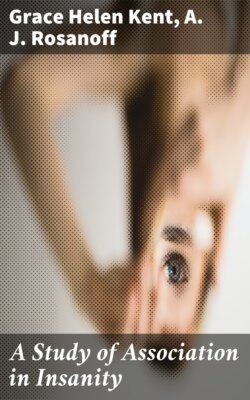Читать книгу A Study of Association in Insanity - A. J. Rosanoff - Страница 21
На сайте Литреса книга снята с продажи.
§ 3. NON-SPECIFIC REACTIONS; DOUBTFUL REACTIONS.
ОглавлениеTable of Contents
*Non-specific Reactions.*—It has already been intimated that common reactions are in the vast majority of instances to be regarded as normal. From amongst them, however, a fairly definite group can be separated out which seems to possess some pathological significance, namely, the group which we have termed non-specific.
In this group are placed words which are so widely applicable as to serve as more or less appropriate reactions to almost any of our stimulus words. That such reactions are in value inferior to the remaining group of common reactions, which we have termed, in contradistinction, specific reactions, is perhaps sufficiently obvious; we shall speak later, however, of their occurrence in both normal and insane cases.
It is not always easy to judge whether or not a given reaction should be classed as non-specific. A study of our material made with special reference to this type of reactions has enabled us to select the following list of words, any of which, occurring in response to any stimulus word, is classed as a non-specific reaction:
article, articles bad beautiful, beauty fine good, goodness great happiness, happy large man necessary, necessity nice
object (noun) people person pleasant, pleasantness, pleasing, pleasure pretty small thinking, thought, thoughts unnecessary unpleasant use, used, useful, usefulness, useless, uselessness, uses, using woman work
It should be mentioned that some of these words occur as reactions to one or several stimulus words with such frequency (citizen—man, value 27.8 per cent; health—good, value 9.4 per cent) as to acquire in such instances a value as high as that of strictly specific reactions.
*Doubtful Reactions* have already been defined (p.40): any reaction word which is not found in the table in its identical form, but which is a grammatical variant or derivative of a word found there, is placed in this group.
